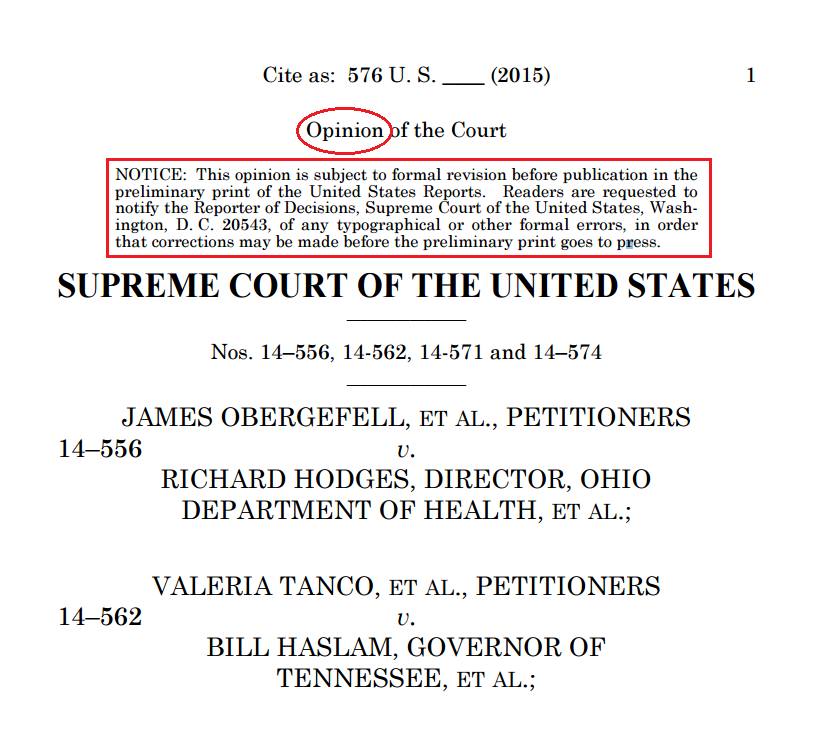GFR7
New member

"Opinions are sometimes right, and sometimes wrong. But they aren't law.
In the early days of our government, Supreme Court opinions were so insignificant that Congress didn't bother preserving them. Opinions were left to individuals to keep track of, and were not congressionally-funded into official records until 1874, almost a century after our independence. Before Congress stepped in, Court records were printed and kept under copyright by private citizens and reporters, who sold them for profit.
Opinions of the Court were kept "loosey-goosey" for decades, and not preserved with certified integrity. Actual statute was held officially and carefully, in order to preserve its certainty as law.
..................
To this day, the actual production of Court opinions is done by contract to private entities. ...
By contrast, actual federal code, the statute that is "on the books" because it went through the constitutional process of lawmaking, remains meticulously and faithfully produced by the U.S. government, start to finish.
Supreme Court opinions have always been treated as inferior to the United States code--because they are not the "law of the land.""
http://www.tomhoefling.com/home/opinions-are-sometimes-right-and-sometimes-wrong-but-they-arent-law

